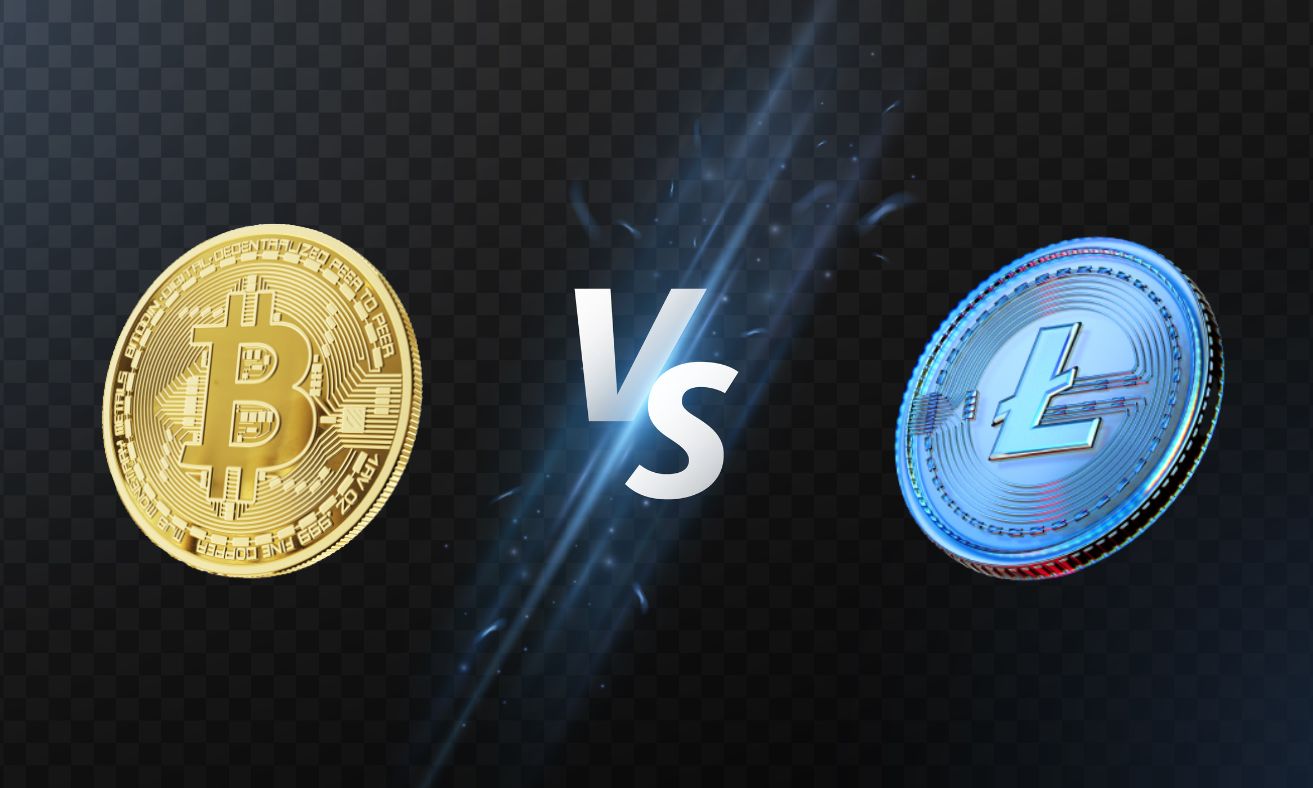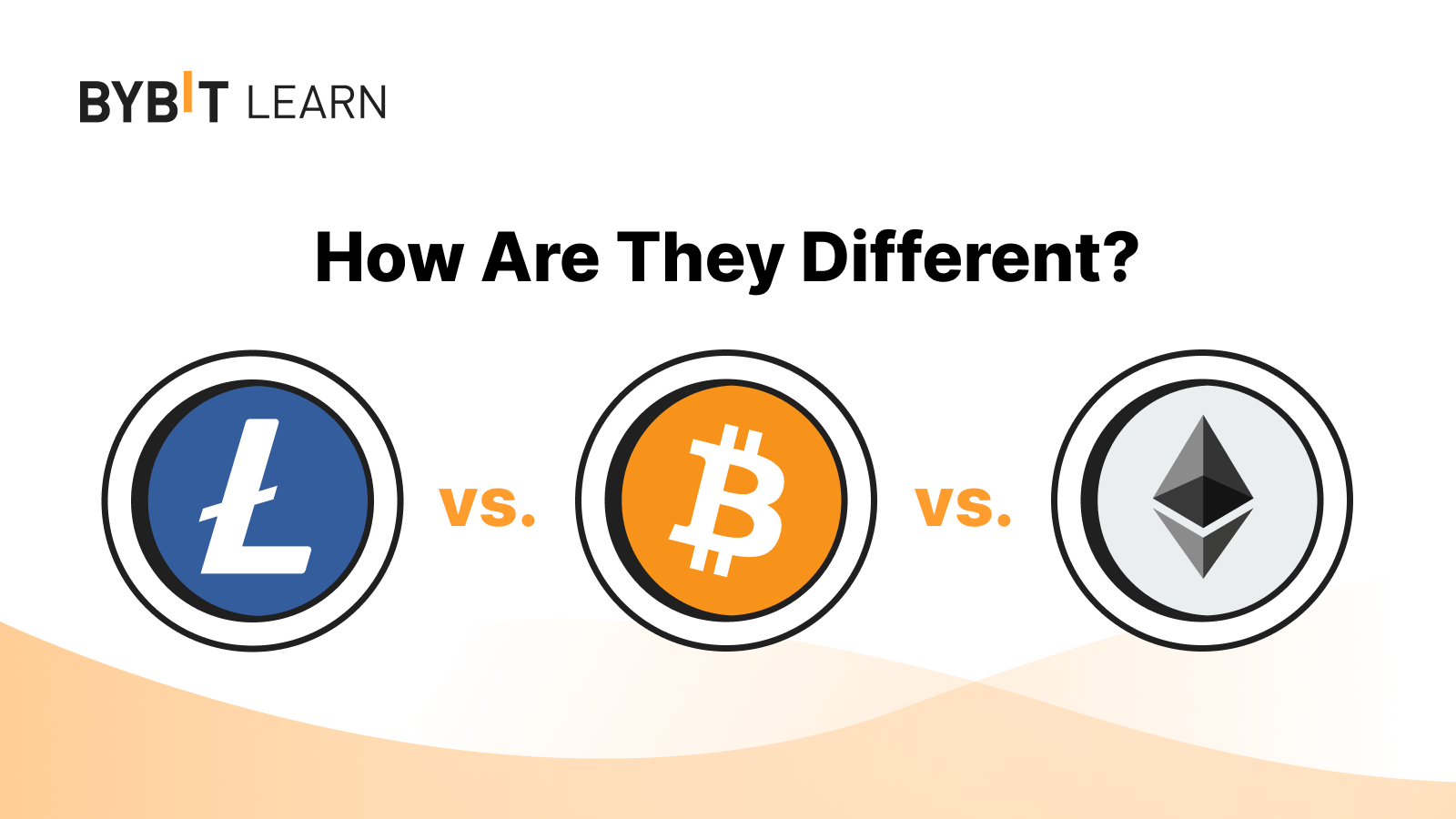Difference Between Bitcoin Ethereum And Litecoin Explained
With difference between bitcoin ethereum and litecoin at the forefront, this exploration offers a fascinating look into the world of cryptocurrencies, where each digital asset holds its unique characteristics and purposes. Bitcoin, Ethereum, and Litecoin have risen to prominence in the crypto space, each with its own story of creation, technological innovations, and market impact.
As we dive into the intricacies of these three cryptocurrencies, we’ll uncover what sets them apart—from Bitcoin’s pioneering role as the first cryptocurrency to Ethereum’s revolutionary smart contracts and Litecoin’s faster transaction capabilities. Understanding these differences is essential for anyone looking to navigate the evolving landscape of digital currencies.
Overview of Cryptocurrencies
Cryptocurrencies have revolutionized the way we think about money and transactions in the digital age. They are decentralized digital assets that utilize cryptography for secure financial transactions and control the creation of additional units. This innovative technology has significant implications for the global economy, offering a new paradigm for financial interaction without the need for intermediaries like banks.At their core, cryptocurrencies share some defining characteristics: they are decentralized, secured by cryptography, and based on blockchain technology.
The emergence of Bitcoin in 2009 marked the beginning of the cryptocurrency era, followed by Ethereum in 2015 and Litecoin shortly after. Each of these coins has played a pivotal role in the development of the broader cryptocurrency landscape.
Bitcoin: The First Cryptocurrency
Bitcoin was created in 2008 by an anonymous person or group of people using the pseudonym Satoshi Nakamoto. Its primary purpose was to enable peer-to-peer transactions without the need for a central authority. The underlying technology of Bitcoin is blockchain, which is a distributed ledger that records all transactions across a network of computers, ensuring transparency and security.The advantages of Bitcoin include its widespread acceptance, strong brand recognition, and potential for high returns.
However, it also has notable disadvantages, such as scalability issues, high transaction fees during peak times, and regulatory scrutiny in various jurisdictions.
Ethereum: Beyond Currency
Ethereum introduced the concept of smart contracts, which are self-executing contracts with the terms of the agreement directly written into code. This innovation allows for automated transactions and agreements without intermediaries. Transaction speeds are generally faster on Ethereum compared to Bitcoin, as Ethereum can process more transactions per second, making it more scalable.Applications built on the Ethereum network include decentralized finance (DeFi) platforms, non-fungible tokens (NFTs), and various decentralized applications (dApps).
This versatility sets Ethereum apart as not just a cryptocurrency, but a whole ecosystem for developers and users alike.
Litecoin: The Silver to Bitcoin’s Gold

Litecoin was created by Charlie Lee in 2011 as a “lite” version of Bitcoin, offering faster transaction times and a different mining algorithm called Scrypt. While Bitcoin generates blocks every 10 minutes, Litecoin does so every 2.5 minutes, allowing for quicker confirmations.Unique features that differentiate Litecoin include its lower transaction fees and a larger maximum supply of coins. Litecoin is often used as a testing ground for new features before they are implemented on Bitcoin, providing utility in various trading scenarios and as a means of payment.
Comparison of Transaction Mechanisms
The transaction mechanisms of Bitcoin, Ethereum, and Litecoin exhibit several differences that can influence user experience and market behavior. Below is a comparison table highlighting transaction processing times and associated fees for each cryptocurrency.
| Cryptocurrency | Transaction Processing Time | Average Transaction Fee |
|---|---|---|
| Bitcoin | 10 minutes | Varies (can be high during congestion) |
| Ethereum | 15 seconds | Moderate (depends on network load) |
| Litecoin | 2.5 minutes | Low |
Transaction fees can fluctuate due to network demand, impacting how users interact with these cryptocurrencies. Additionally, the consensus mechanisms differ: Bitcoin uses Proof of Work (PoW), Ethereum is transitioning to Proof of Stake (PoS), and Litecoin also utilizes PoW. These mechanisms have implications for security, energy consumption, and the speed of transaction confirmations.
Market Performance and Adoption

Bitcoin, Ethereum, and Litecoin have shown varying degrees of market performance, with Bitcoin currently leading in market capitalization, followed by Ethereum and Litecoin. Market capitalization figures typically indicate a cryptocurrency’s overall value in the market, and trading volume reflects the level of activity among investors.Factors influencing price volatility include market sentiment, regulatory news, technological advancements, and macroeconomic trends. The adoption of these cryptocurrencies is growing in various sectors, with increasing acceptance for payments and investment purposes, as well as integration into traditional financial systems.
Future Prospects of Bitcoin, Ethereum, and Litecoin
Potential technological advancements could significantly impact Bitcoin, Ethereum, and Litecoin. For instance, Bitcoin’s Lightning Network aims to facilitate faster transactions, while Ethereum’s transition to PoS might improve energy efficiency and scalability. Litecoin continues to explore new features that enhance its use in transactions.Expected regulatory changes, such as clearer frameworks for digital assets, could influence the future landscape of these cryptocurrencies.
Insights indicate that as adoption rates increase, particularly in finance and technology sectors, the market predictions for Bitcoin, Ethereum, and Litecoin may point towards sustained growth and further integration into daily financial activities.
Closing Summary

In summary, the differences between Bitcoin, Ethereum, and Litecoin highlight the diverse functionalities and advantages these cryptocurrencies offer. Whether you’re drawn to Bitcoin’s status as digital gold, Ethereum’s robust platform for decentralized applications, or Litecoin’s efficiency in transactions, each plays a vital role in the broader cryptocurrency ecosystem. As the market continues to evolve, keeping an eye on these three can provide valuable insights into the future of digital finance.
Popular Questions
What is the main purpose of Bitcoin?
Bitcoin was created as a decentralized digital currency for peer-to-peer transactions without needing intermediaries.
How do Ethereum’s smart contracts work?
Smart contracts are self-executing contracts with the terms of the agreement directly written into code, enabling trustless transactions and automated processes on the Ethereum blockchain.
Why is Litecoin considered the silver to Bitcoin’s gold?
Litecoin offers faster transaction times and a different mining algorithm, positioning it as a complementary alternative to Bitcoin.
Which cryptocurrency has the fastest transaction times?
Litecoin generally processes transactions faster than both Bitcoin and Ethereum, making it more suitable for smaller transactions.
How do transaction fees compare among these cryptocurrencies?
Transaction fees can vary, but Litecoin typically has lower fees compared to Bitcoin and Ethereum, which can be beneficial for users.

